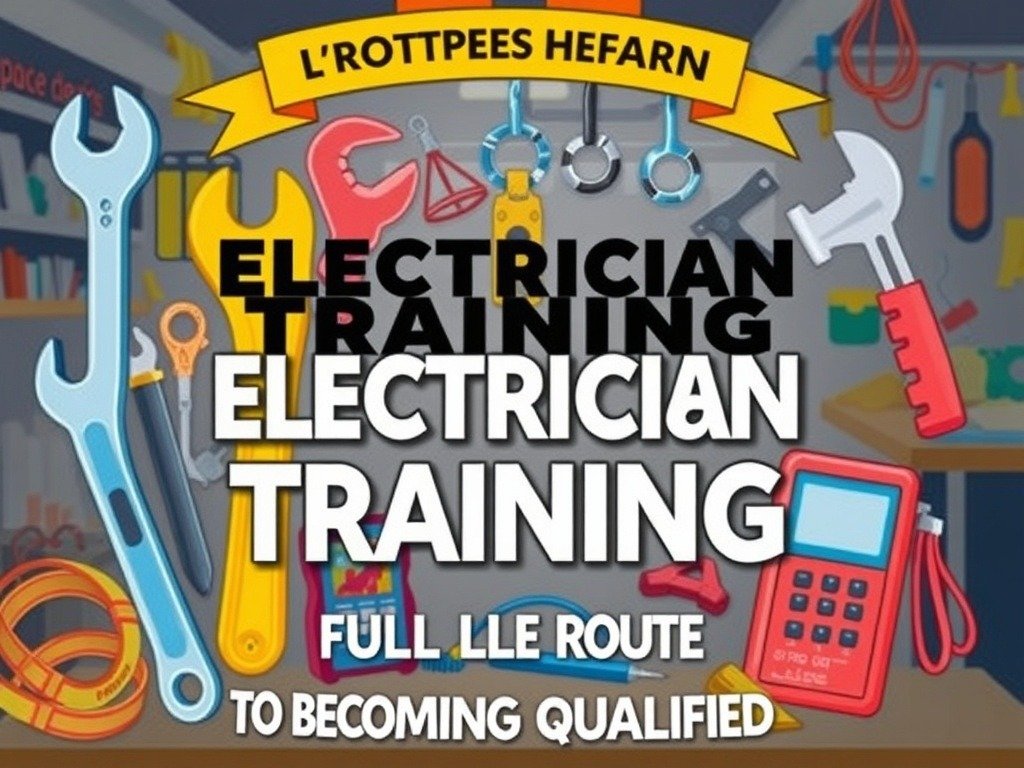
If you’re thinking about a career in the electrical trade, understanding the qualification pathway is the first crucial step. For many, the long-term goal is to complete the NVQ Level 3 Electrical qualification — widely recognised as the benchmark for becoming a fully qualified electrician. If you’re just starting out, this detailed guide on How to Become an Electrician will walk you through the stages, helping you understand what to expect and how to plan your training effectively.
Why Electrician Training Matters
Electricians play a vital role in modern society — from installing power and lighting systems to maintaining infrastructure and meeting evolving energy demands. But because the work involves both risk and responsibility, proper training is essential. It ensures that electricians are not only competent but also safe, up to date with regulations, and able to meet the standards set by employers and certifying bodies.
High-quality training gives you a strong mix of technical theory, practical skills, and real-world experience — everything you need to perform installations, conduct inspections, and troubleshoot faults confidently and safely.
Step 1: Understand the Qualification Pathway
The traditional route to becoming a qualified electrician involves several stages. Here’s how it typically unfolds:
1. Level 2 Diploma
This is where most people begin. It covers the fundamentals: basic electrical theory, installation techniques, safety procedures, and an introduction to the UK wiring regulations. It’s designed for complete beginners or those changing careers.
2. Level 3 Diploma
After completing Level 2, you progress to the Level 3 Diploma (often referred to as 2365-03). This builds your knowledge in key areas like inspection and testing, fault finding, advanced electrical science, and the 18th Edition Wiring Regulations. At this point, you’ll be technically competent but not yet fully qualified.
3. NVQ Level 3 Electrical
This is the final qualification required to be recognised as fully qualified. The NVQ Level 3 Electrical is a work-based qualification, meaning you must be employed or working on real jobs to complete it. You’ll gather on-site evidence, complete a logbook of tasks, and undertake the AM2 assessment — a rigorous practical exam that proves your competence.
Once complete, you’ll be eligible for the ECS Gold Card, which identifies you as a qualified electrician and allows access to most professional worksites.
How Long Does It Take?
The full process typically takes between 2 to 4 years, depending on your starting point and whether you study full-time, part-time, or while working. Fast-track options are available for motivated learners or those with prior experience, but the NVQ still requires hands-on, verifiable work in real environments.
Experienced Worker Routes
If you already have significant site experience but lack formal qualifications, you may be eligible for the Experienced Worker Assessment route. This allows you to fast-track through the NVQ by demonstrating your competence in a structured way, without restarting your training from scratch. You’ll still need to complete the AM2 but can use your existing knowledge and practical background as evidence toward the qualification.
Choosing the Right Training Centre
When selecting a training provider, there are several factors worth considering:
- Accreditation: Ensure the centre is approved to deliver recognised qualifications from awarding bodies like City & Guilds or EAL.
- Facilities: Look for modern workshops, real-world setups, and access to tools and testing equipment.
- Support: Strong tutor support, access to masterclasses, and additional resources can make a big difference in your learning experience.
- Progression options: Make sure the provider offers a clear route through to NVQ Level 3 and the ECS Gold Card, not just standalone theory courses.
Career Opportunities and Earning Potential
Qualified electricians enjoy strong job security and excellent earning potential. Once you’ve completed your NVQ Level 3 and obtained your ECS Gold Card, you can work in domestic, commercial, or industrial settings. Many electricians go on to specialise in areas such as:
- Solar PV and green technologies
- Electrical inspection and testing
- EV charging point installation
- Smart home systems
- Industrial controls and automation
Newly qualified electricians typically earn between £28,000 and £35,000 per year. With experience or specialisation, salaries can rise to £40,000 or more — and self-employed contractors may earn significantly more, especially in high-demand areas.
Summary: Your Route to a Recognised Trade
Becoming a fully qualified electrician doesn’t happen overnight, but with the right plan and provider, it’s an achievable and rewarding goal. Your first step is understanding the route — and the How to Become an Electrician guide will give you a clear overview of what to expect. From there, working towards the NVQ Level 3 Electrical qualification will position you as a competent, trusted professional in the eyes of employers, clients, and regulators.
With electrical skills in high demand across the UK — from new-build housing to energy efficiency upgrades — there’s never been a better time to train. Invest in the right course, and you’ll be on track to a stable, well-paid career with plenty of opportunities for growth.





